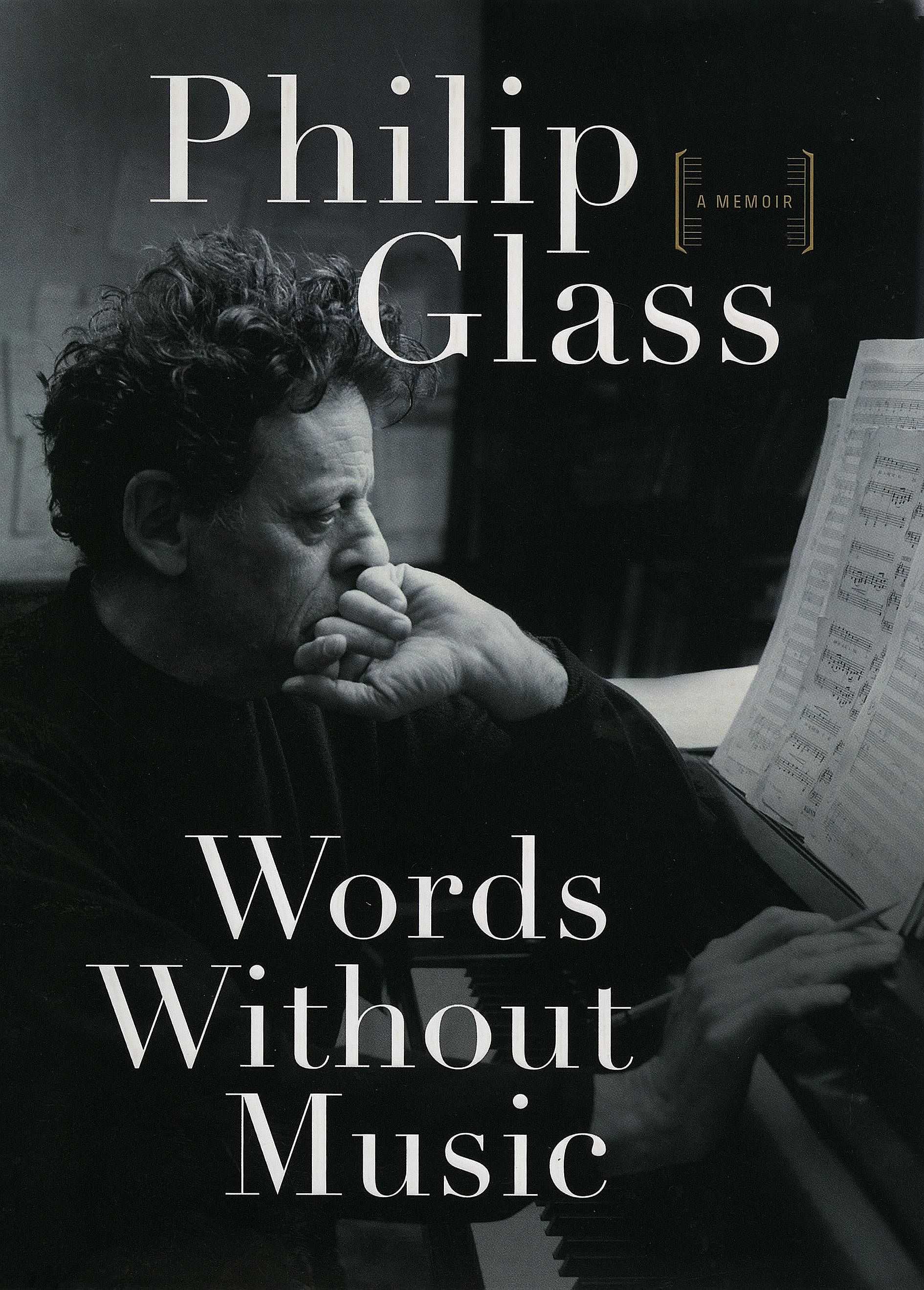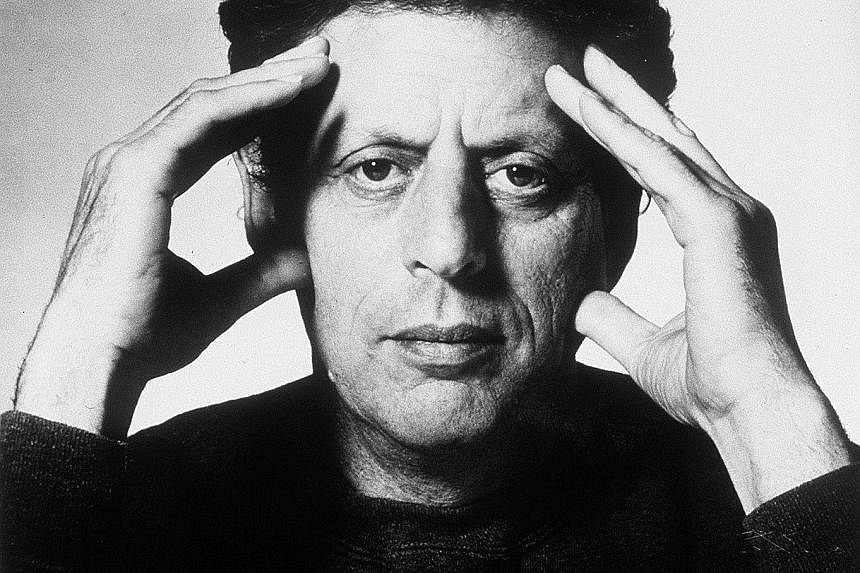BOOK REVIEW
WORDS WITHOUT MUSIC
By Philip Glass / Liveright hardback / 416 pages / $47.95 with GST from major bookstores or on loan from National Library Board branches under the call number English 780.92 GLA-[ART]
If you have a child who is gifted beyond his years, read this rousing memoir by American composer Philip Glass.
Glass, 78, was a child prodigy. Since then, he has spent the better part of 60 years confounding critics and audiences alike with his mesmerising, if head-scratching, music that can take more than five hours to perform.
His works also often pay homage to a host of cultures. For example, his 2005 composition Orion features musicians on the didgeridoo, sitar and pipa (Chinese lute), as well as a high-kicking, kilt-clad fiddler.
Composers of the 20th and 21st centuries consider Glass the most prolific living writer of contemporary music. Glass himself says that he has composed so many works, including more than 30 film scores and 20 operas, that he has forgotten some of them.
His is a life story that resonates on many levels, so you need not even like music much to enjoy the book.
-
How far would you go for your dreams?
-
Join senior writer Cheong Suk-Wai to ponder this on July 29 as the Big Read Meet discusses American composer Philip Glass' autobiography, Words Without Music. We will also discuss, in some depth, the nature of the creative process and how Glass' ideas could best be adapted to suit Singaporeans.
The Meet will be held from 6.30pm in the Central Public Library at Basement 1, National Library Board headquarters, 100 Victoria Street.
Sign up for it at the e-Kiosks in any NLB branch or go to www.nlb.gov.sg/golibrary and follow the steps there.
If you cannot attend the Meet but have thoughts about Glass' ideas, e-mail your views, in no more than 100 words, to suk@sph.com.sg. We will publish the best contributions in the Big Read.
First, it is a triumph of will over circumstance. As a musician, Glass tasted commercial success only at age 42. Up till then, he fed himself and his family by loading trucks, fixing pipes and driving cabs. Life in 1970s New York was so bleak that whenever he took his daughter Juliet for night spins in his cab, she "was sure that I had stolen the cab and that we were all going to be arrested".
Second, it is a cautionary tale about being too loyal to one's own. Glass looked up to his father Ben, a radio repairman-turned-record seller. But his burly father was also a vigilante, beating ne'er-do-wells to a pulp in the street such that Glass resolved never to tell his father who the street bullies were, to save them from being walloped. Glass is garrulous again in recalling his mother on her deathbed, still worrying about whether people would pay him for his music.
Third, it is a rare, telling insight into how creators of art think and behave. They include his great French teacher, the late Nadia Boulanger who, in between screaming at him in exasperation, taught him that "an authentic personal style cannot be achieved without a solid technique at its base".
For much of the book, he straddles two worlds at once - the first, full of posh palaces of culture such as New York's Metropolitan Opera, and the second, an unending grind of grit, grime and secondhand pianos and motorcycles.
Glass does seem to have had more than his fair share of tragedies. In 1983, his mother died after several amputations. Then his third wife, Candy Jernigan, a painter almost 20 years his junior, died of liver cancer after they were together for 10 years.
Glass is unsparing, but never cutting, about his most inexplicable setbacks, such as when he and his father did not speak for 15 years because he married someone who was not Jewish. Then, a week after father and son made up, the elder Glass died at age 67 after being hit by a car.
Fear and loathing are, however, notably absent from this absorbing book of twists and turns of fate. In their place is his laser-sharp focus, canny make-do ways and unflinching unsentimentality.
He is, however, not above launching into tirades against those who misunderstand his music. In Chapter 13, while recalling the first concerts he gave, he notes how a fellow composer described his music as what one would hear "if you take a C-major chord and just play it over and over again". Certainly, the most long-standing criticism of his music is that he plays a cluster of notes over and over again.
But Glass denies doing this, saying that if that was indeed what he did, the results would be "unlistenable". Instead, he claims in the book: "To make it listenable, you have to change the face of the music... so that the ear could never be sure of what it was going to hear."
He stresses further: "To miss that point is like going to a play and falling asleep, but waking up for the intermissions. You miss everything if all you hear are the intermissions."
Here, then, is how he continues to create and manage his muse:
•Determine early what to do with your life: Commit to pursuing what you believe in, no matter what others say or however hard or long it takes. Glass found that the hardest cynic respects talent powered by purpose, so if you know what you want, people will help you achieve it;
•Create beauty every day: Glass does so by setting aside three hours every morning to do nothing but write music. He then wills himself not to write a single note after those three hours. Doing so, he says, shapes one's focus;
•Be open to everything and everyone: By the age of 30, Glass had trekked through Iran, India, Nepal, Pakistan, Turkey and Tibet, reading George Orwell, Jack Kerouac and Herman Hesse along the way. Today, his distinctive music reflects the richness of the East and West and sets him apart from his peers;
•Think less, listen more: He says, let the "activity of playing be shaped by the activity of listening"; and
•Always be aware of your limitations, and work on these: Western-trained Glass wanted to collaborate with sitar supremo Ravi Shankar on a movie soundtrack in 1966. But they could not do so because he knew little about the Indian musical tradition of rhythm matching melody.
Glass' beguiling memories of light, love and laughter will likely linger long after you turn the last page. His friends and family will become yours, and so too their many lessons for living.
FIVE QUESTIONS THIS BOOK ANSWERS

1 How should you decide what todo with your life?
2 How might you best focuson getting things done?
3 When are people most likely to help you?
4 Why is the world of a musician so different from the music business?
5 What is it really like to drink deep from the well of life?


